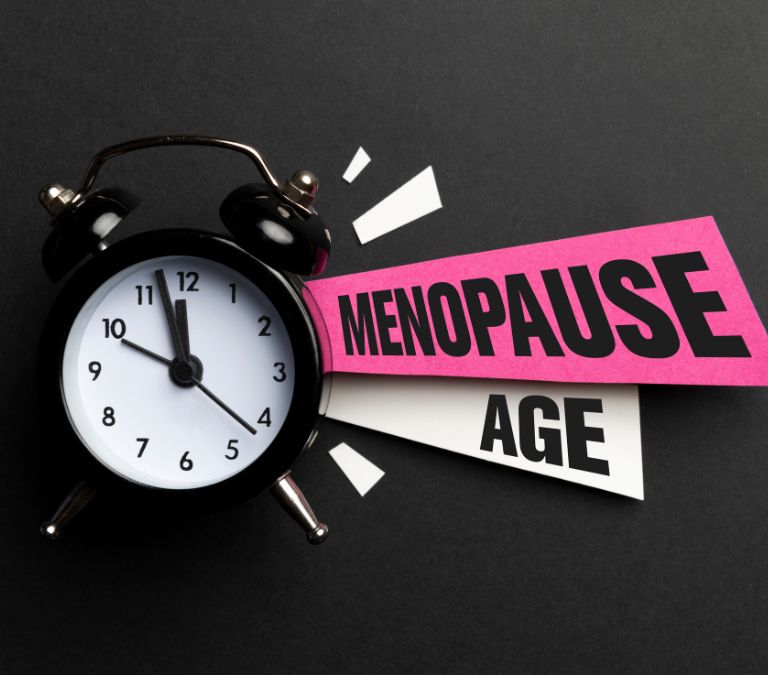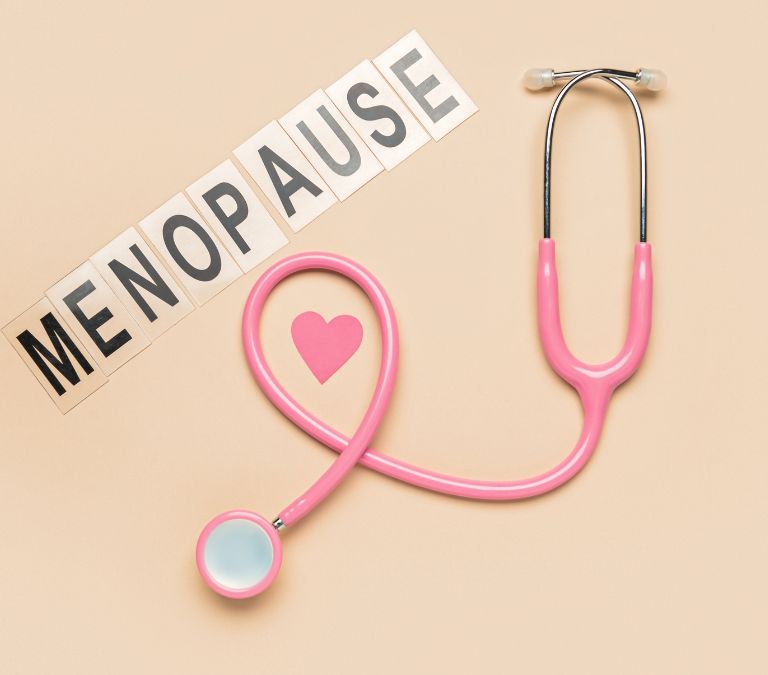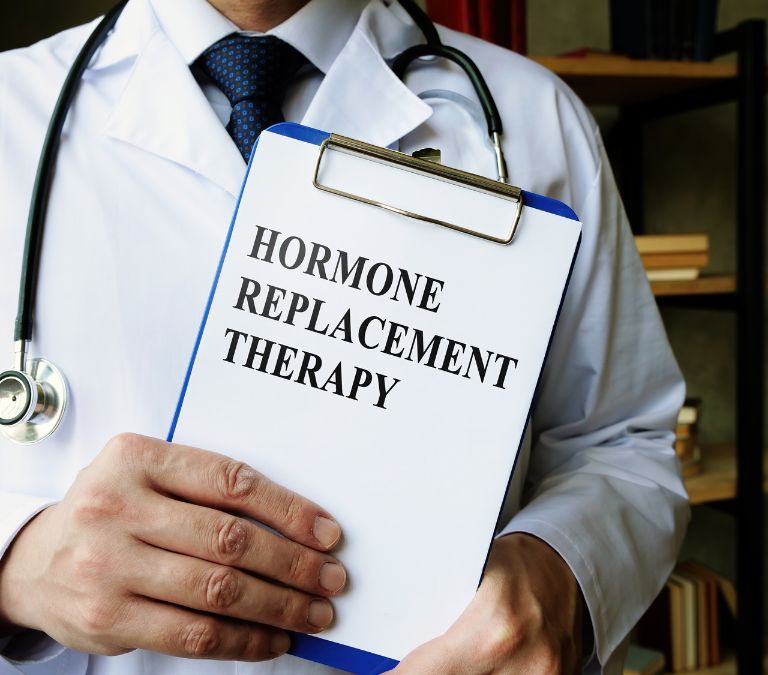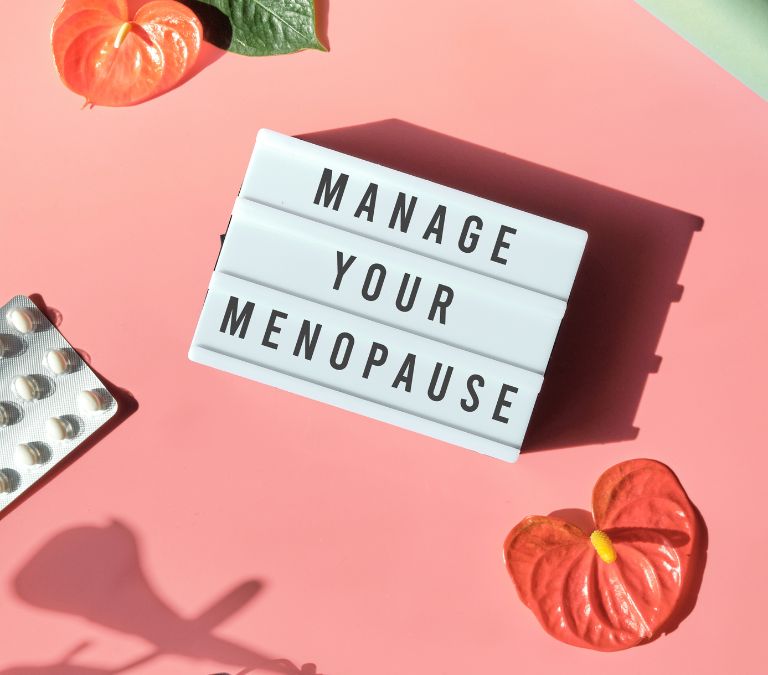Menopausal symptoms can be very hectic and difficult to handle. Today, more women are going into menopause, and the symptoms aren’t going away. In the United States, about 50 million women are already in menopause. Of these 50 million women, about 5 million aren’t even up to 52. It simply means that 5 million of these women are vulnerable to more symptoms of high severity.
Menopausal Symptoms

The human body is a collection of highly complex organs with specific functions. In a woman’s body, the ovaries are responsible for the secretion of estrogen. If you don’t know what the estrogen hormone is, it is the female sex hormone responsible for developing secondary sexual characteristics.
When you get to menopause, the ovaries begin to decline. At this point, the ovaries stop producing eggs and gradually stop doing anything, even estrogen production. This stage is when the symptoms come knocking.
Some of the most popular symptoms of menopause include hot flashes, night sweats, sleep disorders, anxiety, osteoporosis, bloating, fatigue, weight gain, and even cancer. These symptoms are what make menopause dreadful for many women today. However, it is important to know that menopause is not a one-size-fits-all concept. It means that while some women might go through dreadful symptoms during menopause, others go through very low severity symptoms.
My transition into menopause was pretty smooth, with very few complications. During my reproductive years, I had made so much research on menopause, and on getting to menopause, I was prepared for whatever the phase offered. As lucky as I could, I didn’t experience any severe symptoms. Yes, I had a few cases of hot flashes and night sweats, but I was comfortable throughout my transition.
On the other hand, my younger sister, Jasmine, went through hell during her first year of transitioning. Jasmine didn’t have it easy, from the characteristic hot flashes to weird symptoms like bloating, frequent migraines, eye dryness, and urinary incontinence.
One night, I received a text from Jasmine explaining how bad her day went. It was in the middle of the night, and I could tell she was having difficulties sleeping. As much as I wanted to go back to bed and enjoy the cozy night, I was also worried about her, so I grabbed my car keys and zoomed off to her place, which was only a few blocks away from mine.
On getting to Jasmine’s apartment, I found her sleeping on the lawn on a cold night. As frightening as the situation seemed, the look on Jasmine’s face said otherwise. She was sound asleep with a smile on her face. In no time, I woke her up in a bid to get her into the house. After all, it was the middle of a very cold night. Her response, however, was what made that night more interesting.
“My air con is damaged, so I am enjoying nature’s own,” she said. Firstly, it was winter in New York, and there was no way anybody would need to stay cool. Looking closer at her face, I noticed how red it was.
After a few minutes, she stood up and went to the room; it turned out that she was only experiencing a severe case of hot flashes.
Today, women are experiencing menopausal symptoms, and many do not know what to do to help relieve the symptoms. With this, they tend to go for crude and unorthodox options to stop the symptoms.
Managing Menopause

With the occurrence of menopausal symptoms comes the need to manage them. It is important to know that menopause is not a disease; instead, it is a compulsory phase every woman must undergo. For this reason, the best thing we can do for ourselves is to manage the symptoms so that they do not become overwhelming to us.
If these symptoms aren’t managed effectively, we might become less productive. It may affect our job, relationship, and everything considered important. Effective management is key to living a satisfying life, even during menopause.
As the world evolves, so does the field of medicine. Several treatment options are available to help manage and treat menopausal symptoms effectively. Here, we have been able to comprehensively explain 20 management tips for all the problems that come with menopause.
Treatment options listed in this article are divided into three; diet changes, lifestyle changes, and medication.
- Diet Changes
The food we eat can affect the way our body reacts to menopause. Some foods are capable of alleviating menopausal symptoms while others can aggravate them. Menopausal women are advised to be very cautious of their diet to go through a smooth transition into menopause.
- Eat more fruits and veggies.
Your fruits and vegetables are extremely nutritious. With a high content of important vitamins, minerals, and antioxidants, fruits and vegetables have very important roles to play in our health. American dietary guidelines recommend filling at least half your plate with these vital greens and fruits.
According to studies, high consumption of fruits and vegetables can help relieve hot flashes and reduce your vulnerability to heart and cardiovascular diseases. Also, you have no issues with weight gain because, with the high fiber content of fiber in these fruits and veggies, you tend to feel full quickly.
This way, you do not take in so much to warrant issues. The importance of your greens cannot be overemphasized; from low-calorie content to high amounts of essential nutrients, these natural food products have proven to be the best diet options for the management of symptoms of menopause.
- Reduce Caffeine Intake
Coffee and caffeinated beverages may be capable of upsetting vasomotor symptoms (hot flashes and night sweats). Studies conducted on the link between menopause and caffeinated products showed that caffeinated products could be the main reason women who work long hours experience more severe cases of hot flashes and night sweats.
In one of these studies, researchers examined two groups of women to determine the severity of menopause. One group comprised women who weren’t regular consumers of coffee, while the other comprised women who were massive fans of coffee and caffeinated products.
In the study, women who took coffee, soda, or tea regularly showed more worrying cases of hot flashes than women who didn’t take it at all. With this, the researchers concluded that coffee and caffeinated products could tamper with the diameter of blood vessels, thereby upsetting the existing case of hot flashes and night sweats.
For this reason, it is advised that women who are in menopause should reduce their overall coffee intake. If you often experience worrying cases of vasomotor symptoms, then cutting your coffee intake could help you with this problem.
- Eat Foods with High Vitamin D and Calcium Content
The fluctuations in hormonal levels during menopause could also weaken the bones (osteoporosis). Estrogen deficiency is a major cause of primary osteoporosis in menopausal women. As the levels of estrogen drop, bone resorption may become imminent, which can mess up bone formation.
Vitamin D and calcium are nutrients that help strengthen and promote healthy bones. For this reason, doctors and dieticians often advise menopausal women to take more foods and supplements rich in calcium and vitamin D. It has been observed that menopausal women who take enough vitamin D are very likely to experience less severe cases of hip fractures.
Foods with high calcium content include dairy products, while foods with high vitamin D content include greens like spinach and kale. Some other foods with high vitamin D content include beans, sardines, tofu, cereals, milk, and fruit juice. Also, you can take advantage of the sun to get the vitamin D you need. It is important to know that the ability of the skin to produce vitamin D when exposed to the sun declines as you age. It means that its effectiveness might vary for different women.
- Eat Foods of High Phytoestrogen Content
I describe phytoestrogens as the plant versions of estrogen. While this definition is crude, it is not far from the truth. When you get to menopause and estrogen levels begin to decline, you can take phytoestrogen to help balance hormonal levels. With this, we can say that phytoestrogens are estrogen-like compounds found in plants.
A study to establish the effects of phytoestrogens on declining hormonal levels in menopausal women showed that menopausal women who are regular consumers of soy tend to experience less severe or reduced symptoms like hot flashes, cardiovascular diseases, night sweats, and weight gain.
Today, science has enlightened us on the benefits of phytoestrogens on our menopausal symptoms. Some other studies have suggested that natural sources of phytoestrogens were more effective in dealing with menopausal symptoms than processed foods and supplements. However, it is important to know that the level of phytoestrogen in certain foods varies.
Plant sources with the highest phytoestrogen are flaxseeds, soybean, and tofu. While many plant foods contain phytoestrogen, only a few are enough that are considered significant to be used as supplements. Foods with sufficient-enough phytoestrogen content include sesame seeds, berries, barley, rice, wheat, alfalfa, apples, carrots, tempeh, oats, lentils, and rice bran.
Although still disputed by some other research programs, taking up to 45 mg of phytoestrogens every day could help stabilize problems of hormone fluctuations.
- Drink Enough Water
Estrogen and progesterone also have roles to play in the regulation of fluid and thirst. With the fluctuations of these reproductive hormones, the issues of sweating and thirst can become a problem. During menopause, you may notice that you get thirsty more frequently than during your reproductive years. Also, you might notice that you sweat more when you exercise or sleep. The reproductive hormones are no longer sufficient to help regulate fluid in the body.
As menopausal women, drinking enough water is very important. To help the body get as much water as it loses, taking more water than you did could be your 50 cents in helping you with your water regulation problems.
- Cut Sugar Intake
In today’s society, there’s more sugar in our foods than ever before. Even worse, refined sugars have become a major ingredient in many processed foods. Sugar is placed in very large quantities, and we consume them without actually caring about how much sugar is contained in these foods.
Sugar is fine. It provides our muscles and nervous system with adequate nutrients, helps to metabolize fats, and of course, provides our foods with sweetness. The further we go in life, the less sugar we need. As we approach menopause, our need to consume sugar gradually declines. Why, then, is sugar bad, especially during menopause?
With the high sugar content in these foods, menopausal women are now more vulnerable to high blood sugar. High blood sugar will only make menopausal symptoms worse. Problems related to high blood sugar include weight gain and cardiovascular diseases.
The more sugar you take into your body, the higher your blood sugar levels. Research has shown that menopausal women with high blood sugar content are likely to experience more severe cases of hot flashes. Imagine that the burning sensation you often feel repeatedly in your chest is being amplified. Yikes!
Generally, high blood sugar doesn’t prove to be the cause of hot flashes, but studies carried out on an extensive number of menopausal women have pointed out that those with higher blood sugar levels had more severe cases of hot flashes than those with moderate sugar levels.
Menopausal women should reduce refined sugar to avoid high blood sugar problems. Instead, they should use natural sugars like those found in fruits.
- Avoid Trigger Foods
Trigger foods are foods that provoke out-of-control eating. Trigger foods make you lose control to the point where you end up eating more than you should. For example, you can open a popcorn bag and get provoked to eat all the popcorn in the bag.
Most trigger foods are high in calories and are often very sweet. As menopausal women, we can help our body say on course for managing menopausal symptoms by staying away from trigger foods. Intentionally avoiding trigger foods could help you with problems like weight gain, high blood sugar, and even hot flashes.
- Cut Alcohol Intake
Consumption of alcohol remains one of the main habits that increase the severity of menopausal symptoms. As you age, your body gradually loses its ability to hold water. It can be seen in your skin’s dryness and hair as you age.
Generally, women absorb more alcohol than men because women have lighter weights than men. It simply means that women do not handle alcohol as well as men
- When alcohol is taken into the body of menopausal women, it acts as a toxin and stays there for longer periods. Alcohol increases your vulnerability to depression, disturbed sleep, and hot flashes.
Menopause symptoms are usually more amplified in perimenopausal women than in postmenopausal women. However, some postmenopausal women have reported more severe cases of hot flashes and sleep disorders. For these women, the consumption of alcohol could be the major cause of the resurgence of these symptoms. Doctors advise that menopausal women reduce or, if possible, terminate the consumption of alcohol completely.
- Lifestyle Changes
Lifestyle changes are intentional behavioral alterations to adapt to a situation or promote positive life changes. Sometimes, medications aren’t effective enough or may cause more harm. In these cases, lifestyle changes can prove to be very helpful.
All over the world, more menopausal women are living very fine with menopausal symptoms by making lifestyle changes.
- Exercise and Fitness Plans
Sedentary women are more likely to experience more severe symptoms of menopause. On getting to menopause, gaining extra weight is usually very easy. During my reproductive years, I could comfortably eat as much fast food as I wanted, and I experienced little or no difference in my weight. Since getting to menopause, however, gaining weight has become extra easy. Right now, I can barely take an extra plate without noticing changes in my body mass index (BMI).
The dangers of weight gain can be daring, especially during menopause. From cardiovascular diseases to type 2 diabetes and high blood pressure, weight gain could expose us to some worrisome diseases. For this reason, menopausal women need to engage in exercises to help maintain a healthy weight.
Besides its effects on weight gain, exercise can also protect us from certain cancers like breast cancer, endometrial cancer, and colon cancer. You are also offered some degree of protection from osteoporosis.
Here are some of the best exercises and activities to try during menopause to help with your symptoms.
- Strength Training
Strength training could help strengthen the bones with the increased risk of osteoporosis. Exercises focused on general strength could make a difference in helping your muscles and bones stay tough, improve general body metabolism, and burn body fat.
You can start with the use of dumbbells right in your home. Generally, strength training exercises involve lifting heavy items to toughen the bones. You don’t have to overwork yourself; all you have to do is find something that you consider heavy enough, then go through repetitive lifting. This way, you can help build stronger bones and prevent cases of osteoporosis. Alternatively, you can opt for push-ups right after leaving the bed. Doing this Zicontinuously can be very beneficial.
- Stability and Balance
These exercises are important for meditation and relaxation. Some examples of these exercises include yoga, tai chi, deep breathing, and even sitting still. Knowing that menopause doesn’t come the same way for every woman, trying out exercises like these can help you make your mental health better.
Today, yoga has been adopted as a primary way of meditating and relieving stress. Yoga has not only helped us stay calm, but it can also help us boost our sex lives (according to research, at least).
Some research has suggested that regular yoga and meditation exercises can help relieve symptoms like hot flashes, moodiness, and tiredness. If you opt for yoga and it helps you relax and stay calm, you should take more of it; perhaps it could solve many of your menopausal problems.
One exercise move that did work for me was dancing. Yes, dancing. Not only will dancing help brighten your mood, but it also helps you lower cholesterol levels in the body, improving fitness.
- Cardio Exercises
Cardio exercises are good for keeping the heart and cardiovascular system healthy. Cardio exercises are quite easy to do and do not involve specialized equipment. By marching in place, you are already performing a cardio workout. Some of the most effective cardio exercises include jumping jacks, squat jumps, jump rope, stair climb, bear crawl, single leg stand, and jogging.
Generally, every woman is advised to engage in cardio exercises. Instead of taking your car to the park, you can cycle there instead, and instead of using the boring elevator, the stairs can help burn those fats and keep your cardiovascular system healthy.
- Quit Smoking
Tobacco and its products have been linked to aggravated symptoms in menopausal women. Generally, smoking exposes you to certain cancers and fatal health conditions like heart diseases, stroke, diabetes, and lung diseases. Menopausal symptoms can come in different levels, and one thing you do not want to do is add to this problem. For this reason, you are strongly advised to quit smoking.
A study conducted on several menopausal women who are also frequent consumers of cigarettes reported that these women had difficulty sleeping, difficulty concentrating, more intense cases of hot flashes, and anxiety. This finding should be a good enough reason to quit smoking.
- Combating Hot Flashes
The majority of women have experienced varying degrees of hot flashes. Hot flashes can sometimes occur in the chest region or the entire body. It comes with burning or hot sensations that could sometimes be difficult to cope with.
Hot flash was my first menopausal symptom. It started as an instant burning sensation in my upper body and then became more severe as it spread to my face. Eventually, my skin reddened, and it felt like I was blushing at some point.
Hot flashes are the most common symptoms during menopause, and studies have shown that more than 70% of menopausal women have experienced hot flashes. Hot flashes come in various degrees and usually cause sweating, which can be intense sometimes.
Perimenopausal women are advised to wear lighter clothes and ensure adequate ventilation or low temperature wherever they are to help with hot flashes. You can easily balance the body’s temperature with the environment by wearing lighter clothes. Ensure your bedroom is cooled with an A/C or a fan, and try as much as possible to avoid clusters and closed spaces with no air vent or cooling systems.
- Get Enough Sleep
During menopause, it becomes extra difficult to get enough healthy sleep. Menopausal women have often complained of difficulty getting to sleep, difficulty staying asleep, reduced daily sleep time, tiredness, and early morning wakening. Cases of sleep abnormalities can be common during menopause, but how does the body react to the lack of sleep? After all, sleep is very important, right?
Every woman reacts differently to menopause. Some women do not experience sleep problems, while others can’t even sleep at night. If you can still sleep, I’d advise you to cherish sleep and use it well. When sleeping becomes difficult, you can engage by taking the following tips. It might help you get the sleep you need.
- Pick a fixed time to go to bed and wake up. Having a fixed sleep time could be crucial in establishing a regular sleep pattern.
- Try to stay awake during the day. If you stay busy during the day, you tend to make your body hungry for sleep. If you must sleep during the day, keep it for less than 40 minutes. By doing this, you may be assured of long sleep hours at night.
- Eat dinner three hours before sleeping. If you exercise before bed, ensure you do that subtly and at least 2 hours before bed. Also, it is advised to eat light meals for dinner. Do not go to bed if you’re too full or if you’re too heavy.
- Avoid watching TV while in bed. When it is time to sleep, put your computers with display screens aside.
- Do not take coffee or alcohol at late night hours. Your last coffee, caffeinated products, or alcohol intake should be during the late afternoon hours.
- Try to make your bedroom cool, not cold, and get as comfortable as possible.
- If you wake up in the middle of the night and can’t get back to sleep, try doing something boring and quiet. If you feel sleepy again, then go to bed immediately.
- Stay Happy and Positive
Owing to the problems of mood swings, depression, and anxiety during menopause, staying happy can be quite tasking for some women. However, positivity could contribute largely to improved living for menopausal women.
While you cannot be assured of a stress-free life during menopause, staying happy and radiating positivity can help strengthen your immune system and relieve stress. . Remember that a happy mind is a healthy mind, and worrying will not help you in any way.
Knowing that menopause could affect mood, many women today just accept that being moody is a fundamental requirement for menopausal women. For this reason, they make no effort to smile, laugh at jokes, or even stay positive. Laughter is the best medicine, and if happiness is difficult to achieve, then your journey through menopause could be daunting for you and the people who care for you.
Medical Treatments for Menopausal Symptoms

Today, medications are the easiest and fastest treatment for menopausal symptoms.
- Hormone Replacement Therapy (HRT)
Also referred to as hormone replacement therapy, menopausal hormone therapy is treatment taken to help balance the declining hormone levels in the body. As we know already, the ovaries can no longer produce sex hormones. The termination of the ovaries’ functionality eventually leads to the rapid decline in the amount of estrogen in the body, hence the symptoms.
Many treatment options for menopausal symptoms today aim at providing some sort of balance in hormonal levels of the body. Today, the most common management option for menopausal symptoms is hormone therapy.
In simple terms, hormone therapy is the artificial insertion of deficient hormones into the body. In more elaborate terms, hormone therapy is a form of medication used to boost the levels of hormones that have been made scarce by underlying illnesses, conditions, or age.
Because hormonal fluctuations cause most symptoms experienced during menopause, hormone therapy can help balance these fluctuations, thereby relieving us of the symptoms of menopause. Hormone therapy is the best and most effective treatment option for menopausal symptoms. As an additional advantage, hormone therapy can help prevent bone loss and osteoporosis.
Usually, doctors prescribe hormone therapy to menopausal women within the shortest possible timeframe. Long-term use of hormone therapy has been proven by research to increase a woman’s vulnerability to diseases like breast cancer, heart problems, and cardiovascular disease. For this reason, it is important to talk to a doctor before opting for hormone therapy.
- Low-dose Antidepressants
Psychological issues like mood swings, depression, anxiety, and irritability during menopause have become quite common. Low-dose antidepressants may work for women experiencing mild cases of depression and anxiety. If you experience worrying cases of depression, you must speak to your doctor. Low-dose antidepressants could also help women reduce hot flashes.
Low-dose antidepressants will be a good second option for women who, for health reasons, cannot go for hormone therapy or women who only experience mild cases of mood disorder. While these drugs have proven beneficial for many women, taking them without the authorization of a doctor is strongly advised against.
- Vaginal Estrogen
With the characteristic fluctuations in hormonal levels, vaginal dryness could, unfortunately, join the queue of symptoms waiting to attack. It’s crazy how menopause affects every aspect of our lives and even our sex life isn’t safe.
The problem of vaginal dryness usually requires attention not just because we can no longer have sex without using lubricant but because we become more vulnerable to infections and other urinary symptoms. This challenge is where vaginal estrogen comes into the picture.
Estrogen can be applied directly into the vagina to help with vaginal dryness. Vaginal estrogen comes from a tablet, cream, or even a ring. When this treatment is applied directly to the vagina, small amounts of estrogen are released periodically into the tissues of the vagina. When the vagina gets a sustainable amount of estrogen, vaginal dryness could become a thing of the past.
- Clonidine
This medicine is commonly used to treat hypertension. However, pharmacists have administered clonidine to menopausal women to help them with the problems of hot flashes.
Use of Supplements

Certain nutrients we need during menopause aren’t in abundance in our foods. For this reason, supplements can help us provide these scarce but essential nutrients.
- Calcium Supplements
Calcium can be found in food, which is regarded as the best source of calcium. However, you might just need a bit more to fill any gaps. It is recommended that menopausal women who take calcium supplements should do that in very small quantities and be taken together with food during the day. Calcium is essential in the promotion of strong and healthy bones. Osteoporosis is a big problem for menopausal women, and taking calcium could help significantly.
- DHEA
Research has linked the use of DHEA supplements as helpers for relieving menopausal problems like hot flashes and low sex drive (libido). While some other studies have disputed this hypothesis, it has proven successful in some women today. Before taking DHEA supplements, it will be wise to visit a doctor first, as long-term use of these supplements has been said to cause or increase a woman’s risk of developing breast cancer.
- Use of Ginseng
Often regarded as the ultimate mood booster, ginseng has been proven by a few studies to help improve the general quality of life of menopausal women. Not only does it boost mood, but it also helps with the problems of sleep disorders. However, it is important to know that ginseng has not been proven to help ease hot flashes and night sweats.
- Regular Visits to the Clinic
Menopause is a compulsory phase of life that comes with its complications. If these symptoms aren’t handled effectively, menopause could overwhelm you. For this reason, regular visits to the hospital could be what you need to experience a smooth transition into menopause.
When you visit the doctor regularly, you establish an important relationship between yourself and your doctor. This way, your doctor is quick to notice any little changes in the general metabolism of the body. With any slight change, your doctor is quick to inform you and also provide solutions to any change considered harmful.
In the United States, so many people are living with diseases that could become terminal because they don’t visit the clinic regularly. For every food, supplement, medication, or lifestyle change you involve yourself in, be sure to speak to a doctor and get clarity on what such treatment option entails.
FAQs on Menopausal symptoms
Can menopause symptoms go away without treatment?
Yes, menopause symptoms will eventually go away. However, treatment options are what help us cope. Sometimes the symptoms can be overwhelming, leading to low productivity and poor living conditions. For this reason, management and treatment options are important. As you go further into menopause, you begin to experience fewer symptoms.
How bad can menopause symptoms get?
Many women experience only mild menopause symptoms during perimenopause. Some other women, however, can experience very intense symptoms. Different women react differently to menopause symptoms. Menopause symptoms can be too mild to worry about and sometimes severe enough to cause hospital admission.
Why are my symptoms getting worse as I go further into postmenopause?
The symptoms of menopause are supposed to reduce with age. If your symptoms become more amplified as you approach postmenopause, you should check your level of intake of alcohol, caffeinated products, refined sugar, processed foods, cigarettes, and trigger foods.
When should I see a doctor?
You should visit a doctor when you notice unusual changes in your body. You should visit your doctor before taking any medications. You should also visit a doctor when the symptoms become more severe than expected.
Conclusion
Many women today see menopause as an illness. Some other women see menopausal symptoms as incurable. For this reason, they go through the most daring symptoms without trying to find a solution.
Firstly, it is important to see menopause as a compulsory life phase rather than a sickness. Just like other significant changes in the body, the period of menopause comes with its symptoms, and the way you react to these symptoms could either build you or break you.







